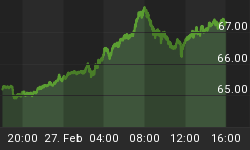Against the reservations of medical experts and intelligence agencies, US President Donald Trump refuses to back down from his claim that coronavirus originated in a Chinese laboratory. After initially praising China’s response to the crisis, the president has changed his tune over the past few days, escalating a war of rhetoric with China over the pandemic and the concealment of early data on the outbreak. China, says Trump, could have stopped the disease from spreading. (Though, he has also criticized the World Health Organization (WHO) and withdrawn US funding).
Trump has also accused China of desiring his election defeat in November.
Larry Kudlow, Trump's top economic adviser, told CNBC last week that the United States will hold China accountable for the coronavirus pandemic.
“On the China business, it’s up in the air. They are going to be held accountable for it. There’s no question about that. How, when, where and why — I’m going to leave that up to the president,” Kudlow said.
The Trump administration is weighing a long-term plan to punish China on multiple fronts for the coronavirus pandemic, including leveling new tariffs on imports from China.
The administration is reportedly considering stripping Beijing of its sovereign immunity, as well, which would allow the US government or private citizens to sue China.
Another idea on the table is canceling some or all of the interest payments on the more than $1 trillion in debt the US owes to China.
Also, since early February, dozens of bills, initiatives or proposals related to China have been introduced in Congress.
The latest proposal came from Republican congressman Matt Gaetz who said that the US should seize the assets of Chinese businesses operating in the U.S. to cover coronavirus damage payments.
“Instead of bailing out Chinese businesses in the United States, we should seize their assets and put them in receivership to pay damages to Americans,” Gaetz said.
Senator Ted Cruz introduced a bill that punishes Hollywood studios that allow the Chinese government to gain creative control over the content of their films.
Related: Brace For A Year Of Crisis And Upheaval
Senate Republicans have also called for economic sanctions; cancellation of visas for Chinese officials and families; and investigations into the pandemic, including China’s culpability and its relationship with the WHO.
It is likely that the shift in Trump’s sentiment toward China’s handling of the pandemic is part of the administration’s efforts to deflect blame for its own handling of the pandemic, as well as to create a new 2020 re-election argument. (The last time around, it was the Wall).
As the economy is crumbling and his dealing with a pandemic is lowering his approval rates, Trump shifted his campaign against Biden, accusing him of being too soft on China or even of being controlled outright by Beijing.
President Trump recently warned that if Joe Biden wins the election, China, among other nations, would own the US.
But there is another angle to consider, as well.
When the coronavirus threat subsides, the world is not likely to emerge as a more unified force than before. Instead, governments like Beijing and Washington are more likely to heighten moves intended to shore up national security, whether it’s a new angle on an old trade war, the war for 5G domination or the battle for control of critical metals.
By Charles Benavidez for Safehaven.com
More Top Reads From Safehaven.com:
















